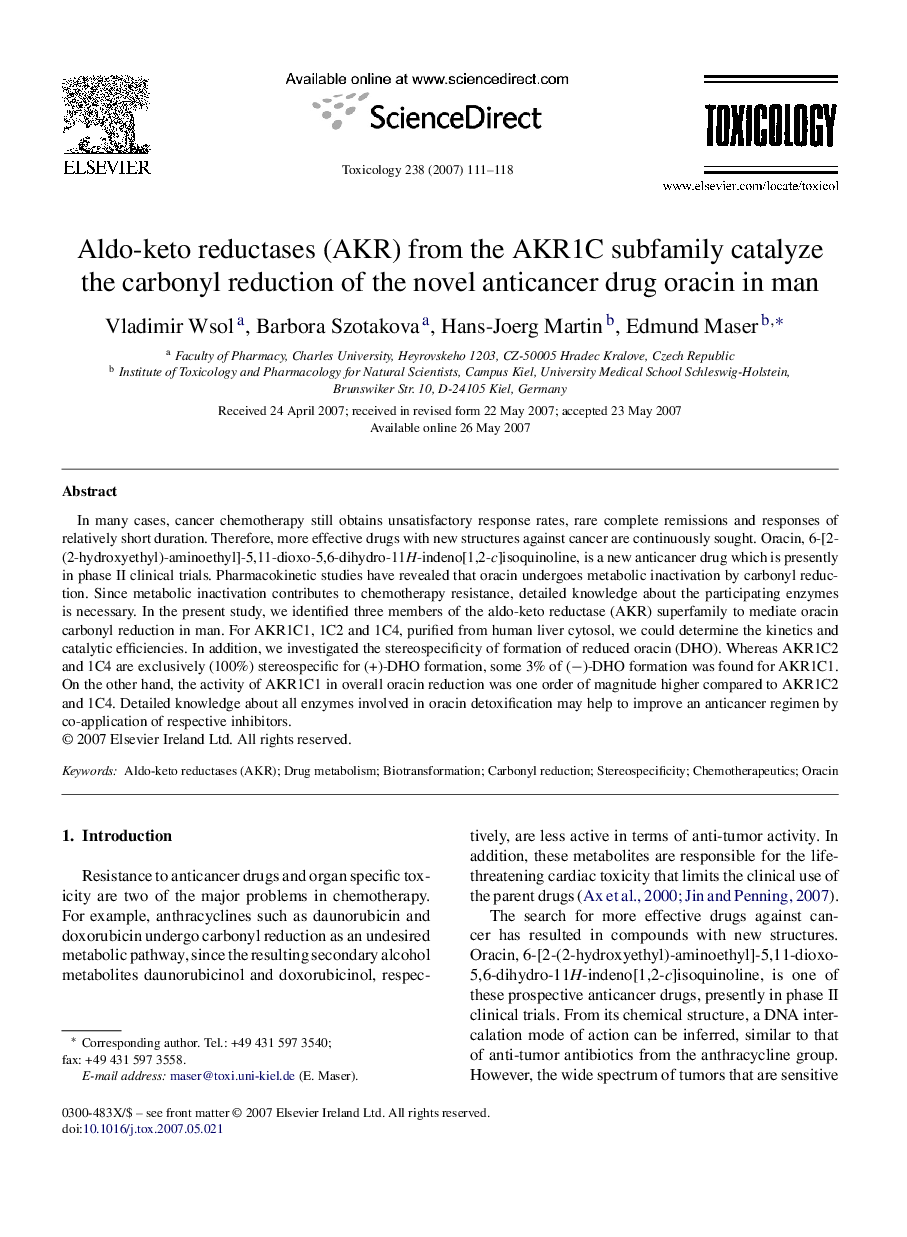| Article ID | Journal | Published Year | Pages | File Type |
|---|---|---|---|---|
| 2597386 | Toxicology | 2007 | 8 Pages |
In many cases, cancer chemotherapy still obtains unsatisfactory response rates, rare complete remissions and responses of relatively short duration. Therefore, more effective drugs with new structures against cancer are continuously sought. Oracin, 6-[2-(2-hydroxyethyl)-aminoethyl]-5,11-dioxo-5,6-dihydro-11H-indeno[1,2-c]isoquinoline, is a new anticancer drug which is presently in phase II clinical trials. Pharmacokinetic studies have revealed that oracin undergoes metabolic inactivation by carbonyl reduction. Since metabolic inactivation contributes to chemotherapy resistance, detailed knowledge about the participating enzymes is necessary. In the present study, we identified three members of the aldo-keto reductase (AKR) superfamily to mediate oracin carbonyl reduction in man. For AKR1C1, 1C2 and 1C4, purified from human liver cytosol, we could determine the kinetics and catalytic efficiencies. In addition, we investigated the stereospecificity of formation of reduced oracin (DHO). Whereas AKR1C2 and 1C4 are exclusively (100%) stereospecific for (+)-DHO formation, some 3% of (−)-DHO formation was found for AKR1C1. On the other hand, the activity of AKR1C1 in overall oracin reduction was one order of magnitude higher compared to AKR1C2 and 1C4. Detailed knowledge about all enzymes involved in oracin detoxification may help to improve an anticancer regimen by co-application of respective inhibitors.
